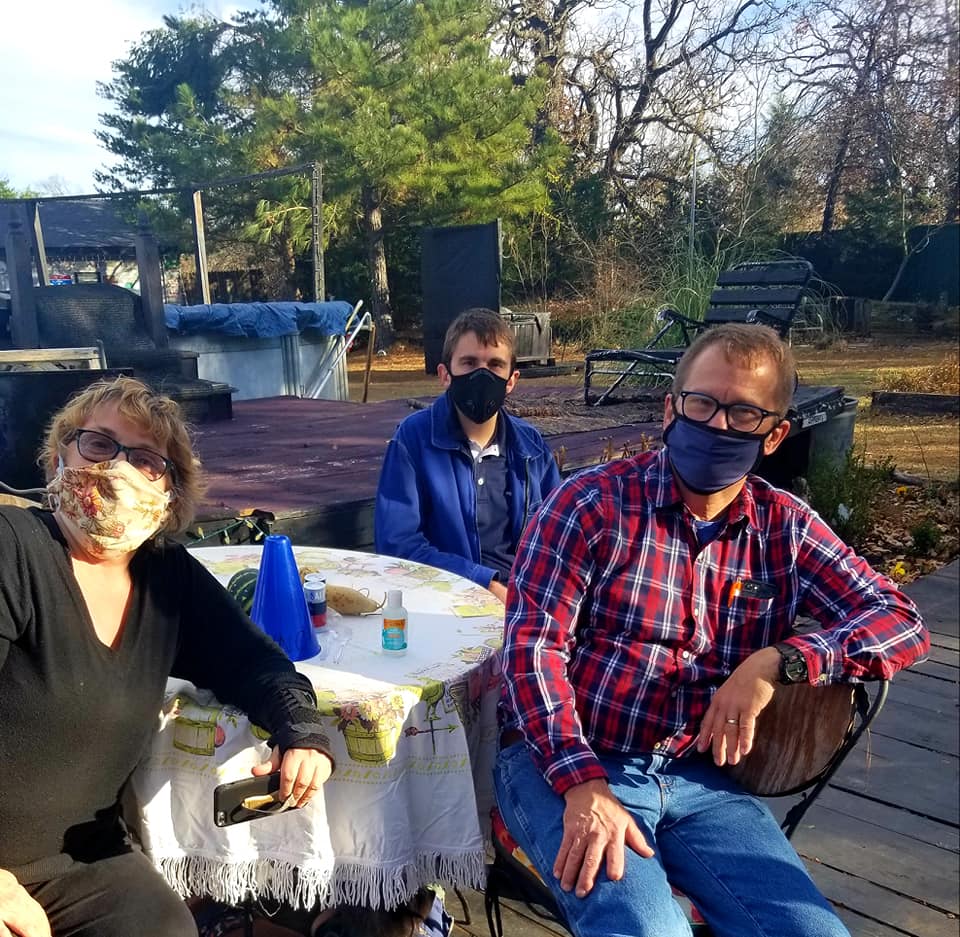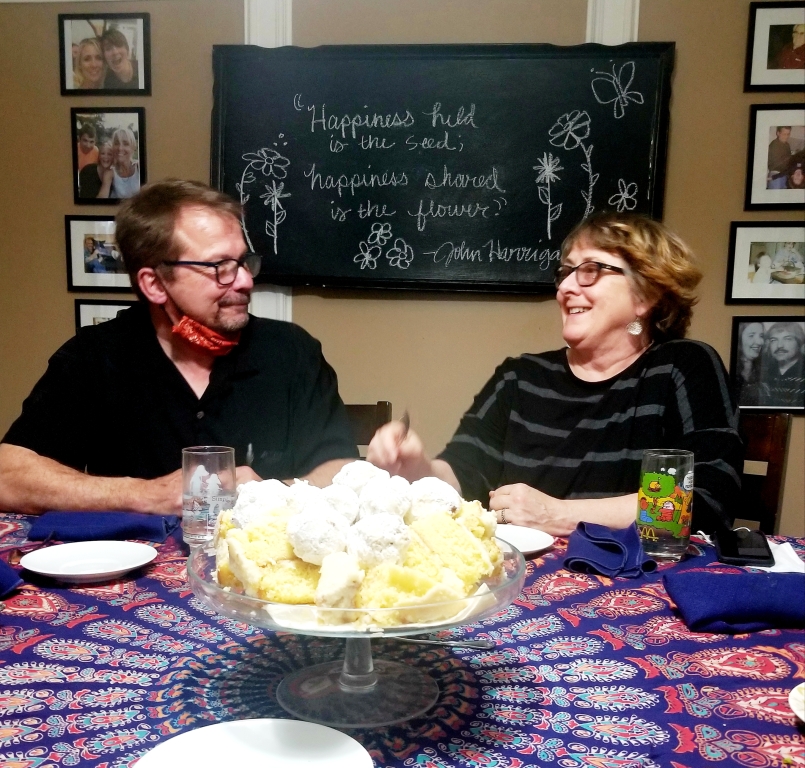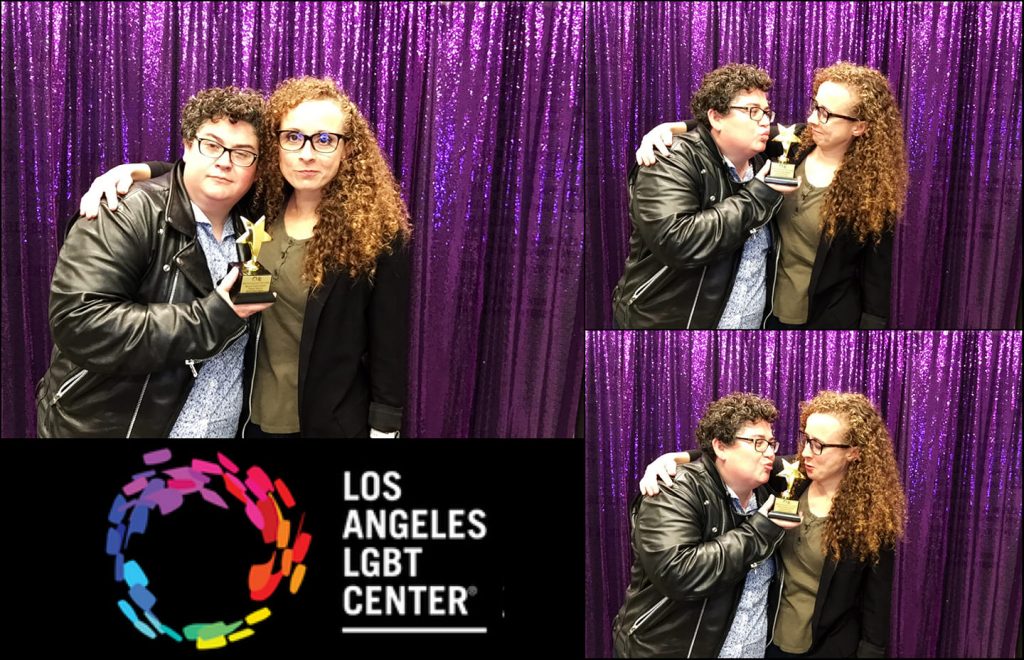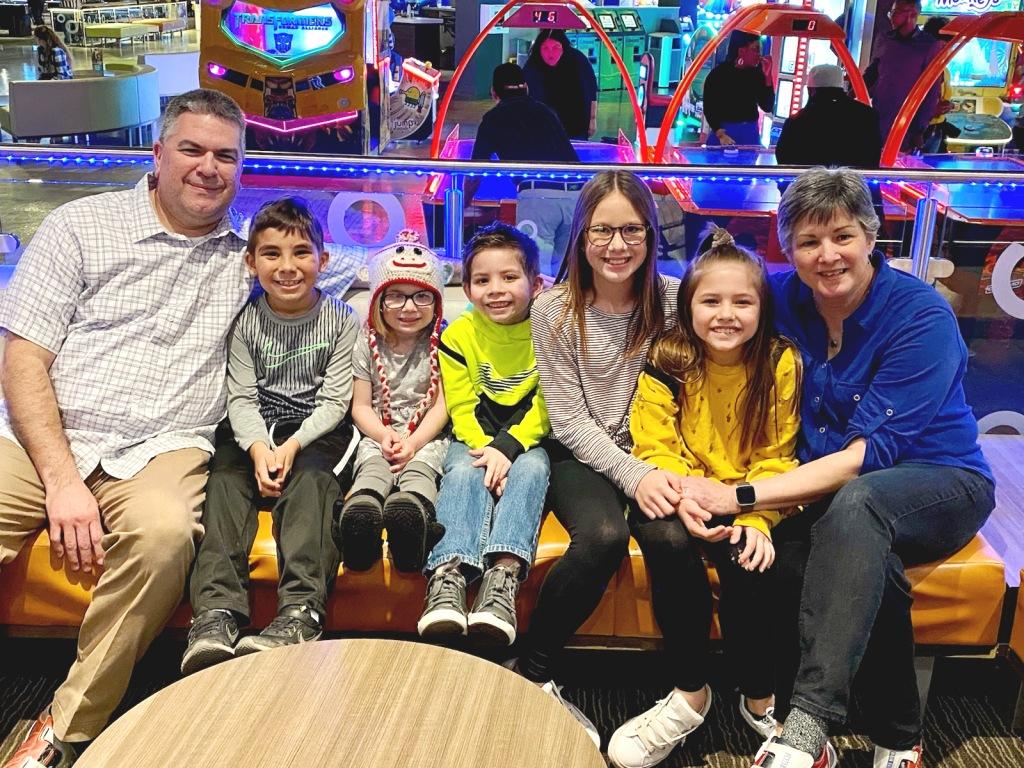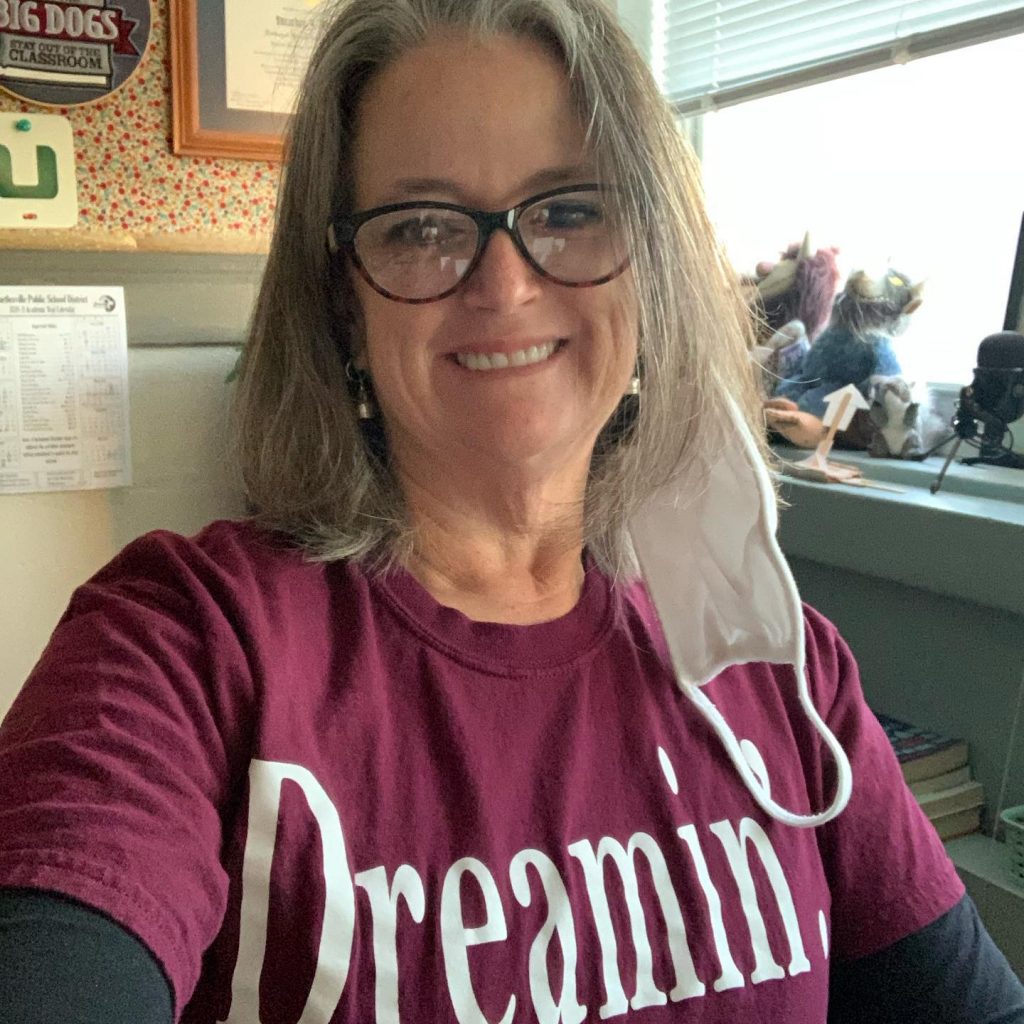For many families, the timing of Pandemic could not have been worse; but for Trisha and her husband Brad, and their two perfect little ones, it came both when they could handle it and when they could use it to galvanize their union. I so enjoyed talking to her, hearing how she navigated the rough waters and came out plenty wet and shaken but definitely stronger. Enjoy!
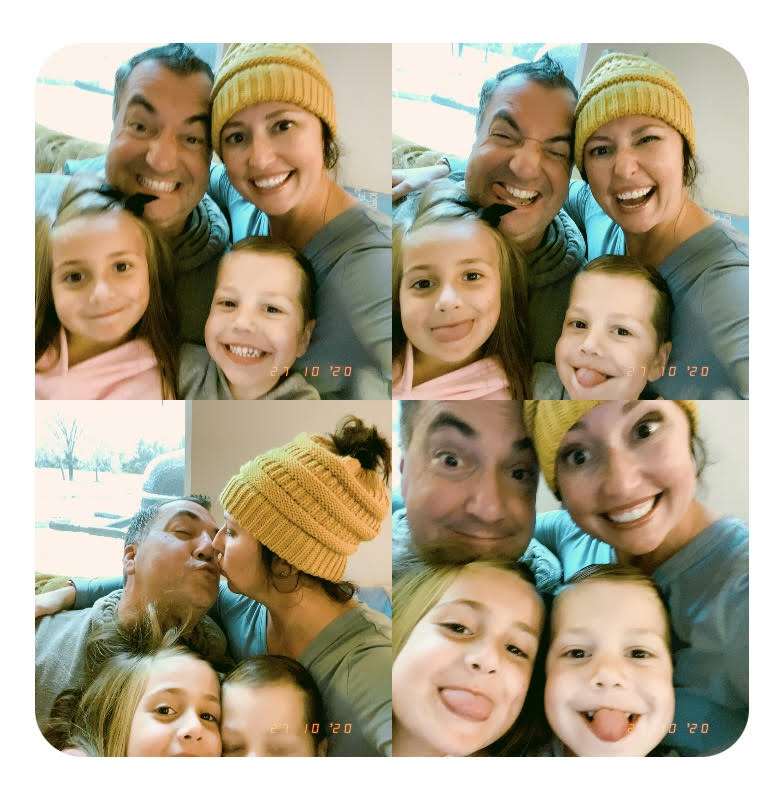
In mid-February, 2020, Trisha Whitley was already “married to the news” to stay apprised of political happenings, when reports of the novel corona virus began filtering in. She understood it then as mostly a problem in China and remembers having unsettling feelings for that population, thinking compassionately, “…they’re gonna be in masks again.”
Gradually, she noticed the infection reports moving from China to Italy, to the United Kingdom, then to New York, and finally to Seattle. She just hadn’t imagined the virus would land here, in the United States.
Together with her husband Brad and their two young children, Avery and Scout, Trisha spent the first weekend in March, 2020, enjoying normal family activities. They attended an outdoor birthday party, explored an antique sale at the old Crossroads Mall, watched the skies for spring weather, and more. Right after that, everything changed. At their daughter Avery’s preschool parent-teacher conference, the teacher hinted about something big coming, maybe big changes for the school. The virus had hit Oklahoma, and shut downs were imminent.
Brad and Trisha stood face to face in their colorful, open floor plan kitchen and had a quiet, serious discussion about what to do next. Trisha’s maternal instincts were to “feed and protect the kids” and keep everything “as normal as possible.” Brad agreed. The Whitleys’ marital operating standard is always absolute teamwork, and the bizarre stressors of pandemic, even at this early stage, only served to reinforce that dynamic.
Their first order of business was shopping. Brad found a painter’s N-95 mask in his workshop, which Trisha wore to a nearby Crest grocery store to buy necessities. She remembers sitting in her car before entering, her petite body shaking as she fought a swelling wave of anxiety. Less than a quarter of the people inside were wearing masks, and it was crowded in a way she had never seen before. Chaotic. A long line of people wrapped around the entire width and back length of the store, waiting to check out. She turned one corner to walk down the soup aisle and let out “an audible laugh-cry” at the sight of an empty shelf where the ramen noodles should have been. She knew that people nearby heard her emotional response. The gaping vacancy in the middle of a place of such normal abundance was more than just startling; it scared her. That store still had milk available, but it was being rationed.
Then she began to notice unkindness between strangers instead of the usual neighborly, Oklahoma behavior. People were actually showing hatred toward the elderly in the crowd, and the overall vibe inside the store was something she had never felt before. She gathered the food and bottled water she needed for her family and got home as quickly as possible.
As that surreal shopping experience sunk into her bones, Trisha felt disappointed in herself for not stopping to help strangers, especially the elderly; but at the same time she was unapologetic for being laser focused on a mission to provide for her own children. As she and I would discuss in so many ways during this long conversation, “Kids change everything.” Also, this was the beginning of a long, strenuous tug of war in her tender heart, between concern for others’ needs and that deep, immovable parental love. She described herself as being “divided in half, talking in my head a lot so as to not freak out in front of the kids, and keeping the kids happy and fed.”
Once extra food and water were acquired (they already had plenty of TP, which was good because the store was already sold out by then), the Whitleys settled in for an especially home-centered Spring Break. Brad had already planned to be home with the family for their week away from preschool (a tradition they started when Avery was born). They counted this as a blessing and dovetailed the family time into him working remote for several months, past when many of his colleagues returned to their offices downtown. Protecting each other and their children from exposure to the virus was paramount, and together they found myriad ways to thrive at home.
In fact, thriving and teamwork were their guideposts. Having Avery and Scout to protect and provide for made everything scarier, more intense; but having them to love and entertain also made it both easier and more necessary to focus on the moment. Trisha loves being a Mom and discovered more and more ways to feed their joy daily.
A word about the timing of life: The Whitleys moved to their rural property in 2018 and built their dream home. They put down roots easily, and their sweet, young family of four began to breathe deeply. They spread out and luxuriated into the spaciousness and freedom of country life, just about a year and a half before pandemic gained momentum. This particular blessing is not lost on them. Trisha reflected on how natural it was for the kids to be outside, in their familiar setting, just enjoying their life in every season and in all weather. They aren’t missing much, as young as they are. The extra classes out in the world, like swimming and music, can resume in time. Brad and Trisha feel good on the land, too, sometimes chatting with neighbors from a safe distance, once hosting an outdoor family gathering, but mostly appreciating the space and safety of “home base.”
I asked for details about their daily life in pandemic. I know Trisha to be a great home cook, so I was excited to hear what her stress snack was (I was secretly rooting for tortilla chips because she makes a killer hot salsa). She answered honestly, “Marie, you know what? It was wine. We drank stress wine.” Haha! Beyond that, she actually talked about survival food, not stress food. I was confused. She explained:
For a stretch of time early in pandemic, thoughts of sheer survival and the possibility of being holed up at home for an extended period of time had them thinking of eating more efficiently, less decadently (wine notwithstanding). They settled on a food that was shelf stable and hit big energy needs in a small dose: Taquitos. I kid you not. She bought a huge box of them. The kids ate normal, balanced, kid-friendly meals including frozen vegetables, but Brad and Trisha got in touch with their true survivor warrior selves by subsisting for a while on Taquitos, cans of albacore tuna, and Kraft macaroni and cheese. This strategy eliminated worries over what fresh produce may or may not have been available at the store, and it eliminated unnecessary trips to the store, too. I love it.
Trisha and Brad’s pandemic survival food strategy might sound unconventional, but it’s a great reminder that when it comes to food, flexibility can be a lifesaver. And as much as they relied on simple, long-lasting snacks like Taquitos and tuna, wine still found its place in their routine—particularly during moments when they just needed to unwind. There was something deeply comforting about cracking open a bottle at the end of a long day of uncertainty. In fact, they quickly learned the joys of exploring new wine options online, discovering the ease of having their favorites delivered right to their door. WineOnline.ca became a reliable go-to for their wine needs, providing them with an endless selection of bottles to suit any mood or occasion. When your grocery trips are limited and you’re just trying to get through another day of isolation, having access to quality wine without leaving home became a small luxury they could appreciate.
She also took advantage of offerings from the Oklahoma City restaurant Whiskey Cake. During shut downs, they marketed a clever survival kit which consisted of eggs, cheese, butter, milk, steak, chicken, and bread. Trisha called it “a lifesaver!”
Daily life with a preschooler and her younger brother was full and fun. I could tell Trisha loved diving in and making the most of this unusual chapter, treating it like a true accepting gratefully the gift of extra time with her children at a tender age. And she had lots to say about distance learning, declaring with maternal authority that “Pre-K does not need six hours of instruction/” But she does acknowledge that they thrive on flexible routine, so she crafted a beautiful one, taking cues from the instructors Avery had loved at swimming, music, and other fun classes.
During the distance learning months, their morning started with breakfast and some kind of movement. That was usually followed by a learning activity Trisha had planned, then some reading aloud, and Avery’s virtual class for the day. Then they either played outside or logged onto an online “Cosmic Kids” yoga class and finished the day by Noon. This left plenty of time for them to simply be a young family. It also helped them feel steady and kept the kids on enough of a rhythm to be ready for school once it started again. “As normal as possible” was another of her good and useful mantras.
Parental entertainment was boiled down to great television like Ozark, You, and Schitt’s Creek. She also read more books this past year than ever before, something that makes her proud. She highly recommends This is How It Always Is. Sometimes, after the kids were asleep, Brad and Trisha would steal outside and burn pinion wood in their chimenea for a quiet date night alone.
Trisha gushed so sweetly about her husband and how proud and thankful she has felt all year, that he stepped readily into the role of “ultimate protector.” She said so many times, in the midst of a variety of beautiful stories, “He has been my rock.” And she described how the stress and necessity of pandemic living just reinforced everything they were already doing. They discuss everything together, work deliberately as a team, and support each other no matter what comes their way. They share parenting duties and allow for the ebb and flow of energy. I loved hearing that the collaboration was natural and healthy for them, but I was not surprised. My husband and I have been lucky to call them friends for several years now, and we and feel the strength of their union glowing off of them, like a safe, steady heat. Unquenchable.
Relating to loved ones in the outside world was a lot more complicated than maintaining a good environment at home, no matter how careful everyone tried to be. Brad and Trisha’s determination to maintain social distance invited some quiet conflict with extended family, and it made for some complex holiday and special event choices. From Thanksgiving to birthdays and even Trisha’s youngest sister’s wedding, the decision to attend or decline was never taken lightly. She shared with me that although they did find ways to participate in her sister’s wedding, she is still to this day worried that she “wasn’t there for her one hundred percent.”
In July, Brad’s much loved and young cousin Scott died tragically (unrelated to covid). Brad and Trisha were devastated to not travel to attend the funeral and grieve with family. That is something covid took that cannot be replaced.
Throughout our conversation, Trisha revealed a depth of love for everyone in her very full life. The residual conflict obviously still makes her ache. But she is steadfast in the choices they have made to keep their family unit safe and healthy.
We talked more about the booming infection rates and the fluctuating social dynamics this past long year. All spring, the Whitleys’ efforts to stay safe paid off. Trisha even admits to feeling a bit of pride for having avoided the virus. Then summertime hit, and covid spread rampantly through her extended family. One person after another contracted it, including her parents who very much and understandably wanted to be around their grandchildren, her brother in law who is a small town firefighter and works in unavoidably close contact with others, also both of her sisters, one of whom is a school teacher and the other who was pregnant at the time (both she and the baby are ok). It was a long, tense, scary summer; but thankfully nobody’s symptoms were bad enough to require hospitalization. Some of the family still has lingering side effects, but overall they are doing well and counting their blessings.
In broader social circles and society at large, Trisha watched the spreading darkness and hate speech, the oiliness of fear and hatred seeping everywhere. She wonders, looking both back and forward, about misinformation and poor leadership, the misconceptions we might have about herd immunity, and what is next for our country. We talked about some of this but did not discover any magic answers. It’s all more of that ever present weight and worry. “How could we have done better?” she said, “Have we learned our lesson?” Excellent questions.
Brad and Trisha decided early on to not fill their kids with fear of the virus but just instill a healthy respect for germs and teach them to avoid hugging others. They watched kid-geared educational videos on germs. Convincing other people to avoid hugging their kids was the hard part. (Those two are scrumptious!) Also, their household chose to refer to covid as “the Germ” in a casual, matter of fact way, so as to not create a huge looming covid monster in the world. It is just a germ to avoid, that’s all.
The winter holiday season was extraordinarily difficult for her extended family. Thanksgiving is especially sacred to everyone, and celebrating apart from each other was hard. “Life is so fragile,” Trisha said sadly. And I know she meant not just the flesh and blood of bodily life but also the spirit of bonds and relationships. At the end of the day, though, mortality was the foremost concern. Trading special gatherings for health and safety made for one excruciating choice after another. The guilt of isolating themselves is still heavy.
When the
vaccine was first approved, Trisha was among the earliest offered her first
dose, thanks to her up to date license to practice as a dental hygienist. She battled
more guilt and inner conflict about accepting the vaccine when so many others
needed it, but eventually she relented and today is fully vaccinated. To be
clear, her hesitation was never about trusting the medicine itself; she knew
the technology existed to thoroughly and safely green light the vaccine. She
has full trust in the scientific process and the community that keeps it
moving. Trisha spoke with awe and reverence, saying, “I find it humbling,”
about the work being done behind closed doors, to keep the world safe. “Those
people love their job so much!”
Still, as much as the story of vaccines is one of hope, it is also a reminder of the complexity surrounding medical progress. Rare complications can and do arise, and while they do not diminish the overwhelming benefits of immunization, they require honest discussion and support for those affected. This is where compassion and accountability must intersect, because someone facing an unexpected outcome may feel overwhelmed by both the physical toll and the bureaucratic process that follows. Having a trusted vaccine injury attorney can make a profound difference in ensuring those individuals are not left to navigate their struggles alone. It is a balance between celebrating the lifesaving impact of vaccines while also acknowledging the human stories that unfold when medicine, in rare instances, takes an unintended course. Both truths can exist together, bound by the same respect for health, safety, and justice.
Both kids are back to school now, and Brad is back at the office. They all continue to take precautions but also live life fully on their land. One of the best gifts pandemic has afforded Trisha has been extra time to research her own gardening methods, and she is elbow deep in top soil, wildflower seeds, and young peppers, painting gorgeous murals, and making memories with her babies.
Sweet Scout turns four this April. His doting parents are gently brainstorming a way to celebrate with loved ones, maybe something outdoors at a safe distance. Surely they will make the right call. After a year of so many weighty decisions and so much navigating of complex people dynamics and health concerns, the Whitleys’ rock solid teamwork will no doubt rise to the occasion. (I just wonder if they will serve wine and Taquitos.)
“Dig deep in your heart and find love,” my beautiful friend pleads with the world, “Use that.”
XOXOXOXO
